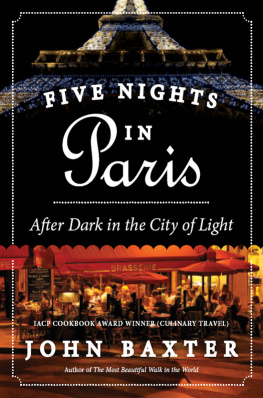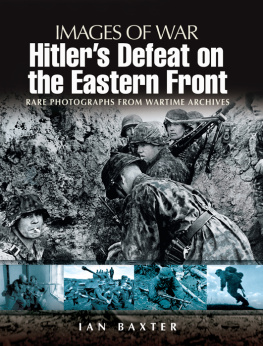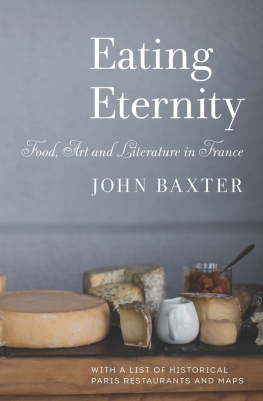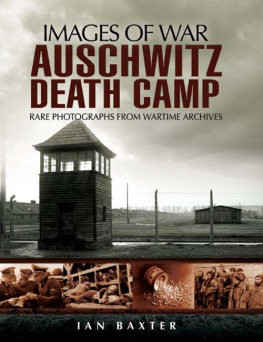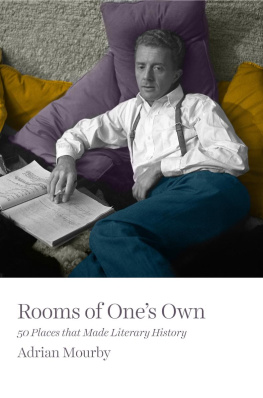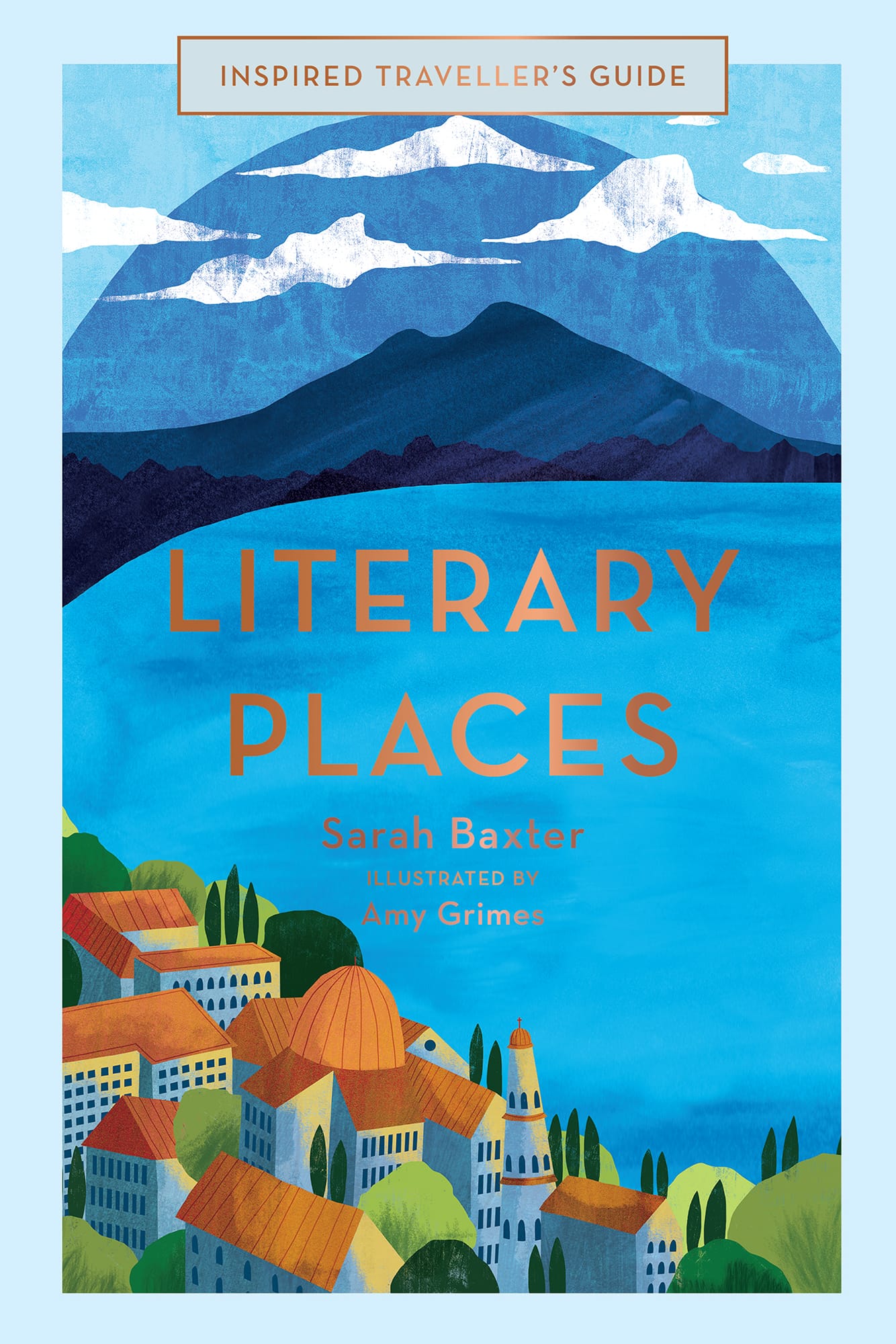INSPIRED TRAVELLERS GUIDE
LITERARY PLACES
SARAH BAXTER
ILLUSTRATIONS BY AMY GRIMES


First published in 2019 by White Lion Publishing,
an imprint of The Quarto Group.
The Old Brewery, 6 Blundell Street,
London, N7 9BH,
United Kingdom
T (0)20 7700 6700
www.QuartoKnows.com
2019 Quarto Publishing plc.
All rights reserved. No part of this book may be reproduced or utilised in any form or by any means, electronic or mechanical, including photocopying, recording or by any information storage and retrieval system, without permission in writing from White Lion Publishing.
Every effort has been made to trace the copyright holders of material quoted in this book. If application is made in writing to the publisher, any omissions will be included in future editions.
A catalogue record for this book is available from the British Library.
Digital edition: 978-1-78131-811-9
Hardcover edition: 978-1-78131-810-2
Design by Paileen Currie
INTRODUCTION
TURN OVER the page. What or where do you see? Perhaps you see city streets or verdant fields, vast mountain ranges or dark, haunted forests, stinking slums or golden temples. A multitude of worlds written into being. Palaces of words, landscapes of letters, towns built of sentences. Whole societies or galaxies constructed from carefully laid conjunctions, stocky nouns, playful verbs; from swirls and curlicues of ink.
Writers build places. Sometimes they conjure make-believe realms, unfettered by rules of sense or science. But sometimes they evoke real ones destinations you can find on a map. And sometimes they manage to make those real places feel more real than any photo ever could. They render locations large in mere ink, perfectly capturing their sights, sounds, smells and essence, turning a previously blank sheet into a teleporter for the readers imagination.
Truly great writers recreate not only locations but also eras and histories. Indeed, via some classic works of literature, a reader can travel both around the world and seemingly back in time: to the plains of medieval Spain, to the squalor of Victorian London, to the horror of apartheid-divided South Africa. The very best writers bring not only the physicality of these destinations to life but also their layers; their nooks and crannies, their politics and their position in the world. In this way, these destinations can come alive for people living in different countries, on different continents, even in different centuries. Not everyone is able to travel. And no one not yet can travel in time. So by reading great books anyone, of any nation, is able to journey to a totally other period and place.
In this book we have focused on just 25 great literary places a much-deliberated shortlist of intriguing locations that have featured, if not starred, in some of the best novels ever penned. With the help of beautiful illustrations, this armchair guide hopes to convey you to these varied spots, spread all over the globe. Many of them you may know, some you may not. But, with luck, every chapter will transport you, for a moment at least, to somewhere else entirely be it the politically and seismically shaken ).
In many cases the destinations collected here arent just passive backdrops to the tragedies, romances and adventures that unfold within them. These destinations become characters in their own right, rising up from behind the scenes to take centre stage; they have agency, influencing plot, action, emotions and outcomes.
For instance, consider the North York Moors of Emily Bronts Wuthering Heights (shown ). This heather-fuzzed, wind-whipped wilderness, where the literary Bront family lived, played and wrote, may as well be listed in the novels dramatis personae. The moors feel as corporeal, untameable, moody and brooding as Wuthering Heights antihero Heathcliff himself. Its utterly impossible to imagine this strange 19th-century Gothic romance so fierce and full of passion set anywhere else on the planet. The author and her masterpiece are both inseparable from this soil.
Likewise, Holden Caulfields iconic episode of teenage angst, as portrayed in J.D. Salingers The Catcher in the Rye (shown ), wouldnt have quite the impact if it wasnt set on the hustling, bustling, grim-and-glamorous avenues of late-1940s Manhattan. Salinger captures the mid-century metropolis, with its pimps and phonies and elusive ducks, at a defining moment a time when New York was both dealing with the dark aftermath of the Second World War and booming on the world scene. The citys external chaos and confusion mirror the inner turmoil in the young protagonists mind.
In some cases the words, the place, the culture and the events are so intertwined and richly rendered in a novel that reading it is akin to absorbing the best sort of history lesson, without even noticing. The Cairo Trilogy by Naguib Mahfouz (shown ) not only describes the specific geography of the Egyptian capitals most atmospheric neighbourhood, it weaves in myriad strands from cookery to religion, architecture to 20th-century politics to create an elaborate carpet of a book. You can be enthralled by the narrative of the al-Jawad family, as you might be by any such saga, but youll also come away better educated about Islam and about what has made Egypt the country it is today.
There are many, many more literary locations that could have been included here places so brilliantly evoked in books that you can almost smell the dirt, dust or blood on their pages. For example, we could have taken a murderous cruise down the Nile with crime queen Agatha Christie; we might have explored Istanbul through the Nobel Prize-winning pages of local-born Orhan Pamuk; or we could have followed the sinister Dracula trail laid in Romania by Bram Stoker. Sadly, the pages of this modest book are limited to covering only 25 others. But maybe by reading a little about this handful of wonderful written worlds you might feel inspired to either read the original tomes or to continue your literary travels by seeking out more globe-trotting works. Who knows? You might even feel moved to travel to some of the real-life locations and try encapsulating them on paper yourself
PARIS
Which? | Les Misrables by Victor Hugo (1862) |
What? | French City of Light, squalor, revolution, galit and Enlightenment |
DO YOU hear the people sing? The angry men, demanding to be heard? Once, before these elegant boulevards ploughed through the congested slums, this city screamed with revolution; tight-packed, disease-festered alleys clogged with barricades and voices yearning for libert, galit, fraternit. Now, the avenues are wide, bright, brimming with bonhomie; the noise is of coffee cups chinking on enamel tabletops, breezes rattling the neat plane trees. These streets are elegance and



